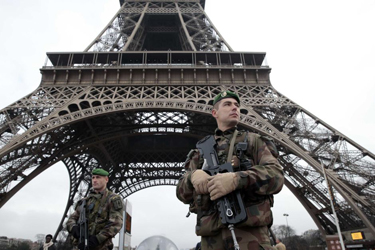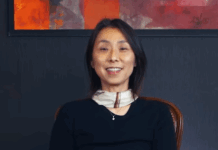By Dr. Mordechai Kedar, Israel National News

Beginning more or less with 9/11, the expression “radical Islam” became the accepted way for the media, politicians and public to define the religious and ideological foundations of Islam-based violence when referring to what the world calls “terror.” This expression was meant to be contrasted with “moderate Islam” which presents Muslims as ordinary people who wish to live in peace with all of mankind – Christians, Jews, Buddhists, unbelievers and the rest of us. The world created the image of two Islams, one radical and impossible to live with, and one moderate and “just like us.”
This differentiation between “radical” and “moderate” Islam is what gave rise to the claim that Islam had been “hijacked” by the radicals, implying that the real and original Islam is the moderate, not the false, radical one.
This is what allows today’s Europe to relate positively to the wave of mostly-Muslim illegal immigrants washing up on its shores — they represent “moderate Islam” and all they want is to live in peace and harmony with their European neighbors.
Permit me to raise some doubts concerning the psychological mindset that claims the existence of two types of Islam. In order to do this, let us clarify an important point: Islam is a text-based framework of ideas and behaviors, covering religion, culture, strictures, politics, law and economics. It is an all-embracing way of life. The most basic text is the Qu’ran, followed by the Hadith (oral law) and the Sura — biography — of Muhammad. The Sharia, Muslim law, is a system of binding laws and injunctions that Muslims are obliged to obey.
There are no two Islams, no moderate one and no radical one, there is just one Qu’ran that includes everything: verses on Jihad and all out war against unbelievers along with verses that speak of recognizing the “other” and living beside him.
There are no two types of hadith, one radical and the other moderate; there is just one body of hadith that includes everything, both violent and moderate ideas.
Muhammad does not have a moderate biography and a radical one; there is only one life story of the prophet of Islam and it has stories that express a radical, violent approach and others presenting a moderate one.
There is also just one Sharia that includes everything, from the radical cutting off of a thief’s hands to the unquestionably moderate admonition to care for the poor and indigent.
That being the case, there is no “moderate Islam” and no “radical Islam”, just one Islam that incorporates both terms, ranging from extreme radicalism to extreme moderation. In practice, we see people with different cultures, some of them extremists and some moderates, all finding verses, ideas, precedents and laws that support their views on life and society in the same Qu’ran, Hadith, Sura and Sharia. The radical Muslim chooses to quote sources that support his extremist approach, while the moderate Muslim finds sources to buttress his moderate approach.
Those two Muslims, the most extreme and the most moderate, are “kosher”, because they both rely on legitimate Islamic sources, and neither can claim that the other “hijacked” Islam. All the Muslims in the world, all one and a half billion of them, men, women and children, are to be found somewhere on the moderate-extremist continuum. They may live alone or as part of families, tribes, organizations and societies.
Islamic State is a state established and continuing its operations with the participation and cooperation of a large body of Muslims and converts to Islam who are on the extremist tip of the continuum. Al Qaeda is right there next to them, as are Hamas, Hezbollah and all the other terrorist organizations. On the other end of the continuum, the moderate one, are the members of the “Muslims for Tomorrow” organization, a totally moderate group of Muslims living in Toronto, Canada.
Along the scale connecting the endpoints of the continuum, one can find all the other Muslims in the world, each one on a point of his choosing, somewhere between radicalism and moderation. His place on the continuum is a dynamic, not a static one, and a once moderate Muslim can undergo a process of radicalization, while another, who was an extreme radical can change his views and become more moderate. Life has a way of moving people along the continuum, making it harder to predict the future of an individual or group.
Moderate Muslim migrants live in harmony with the foreign societies to which they have migrated. They blend in nicely, work for a living, are law abiding and contribute to the economy and society that absorbs them. More radical Muslims who migrate to new societies tend to live in the enclaves that preserve their culture and way of life, only partially blending into society and the work force and constantly attempting to influence and change for their own ends the society that let them in. If they are on the violent side of the continuum, that violence will be turned on the society that accepted them – a fact that is most evident in today’s Europe.
Translated from Hebrew by Rochel Sylvetsky, Arutz Sheva Op-ed Editor.




Excellent, well-balanced article.
It is true that there is only one Koran upon which Islam is based. It is also true that the vast majority of Muslims accept the Koran as the revealed words of God. It is also fair to say that “Islam is a text-based framework of ideas and behaviors, covering religion, culture, strictures, politics, law and economics.” However, to imply that there are not great variations between how Muslims view and practice Islam is not accurate. Having lived in the Middle East for ten years, it is my observation that Muslims my age (64) grew up in a time when Islam was taken for granted and people saw it as a moral guide and indeed it also controlled culture and politics. But at that time Islam seemed to be slowly adjusting to the modern world. However some Muslims seeing the creeping secularism decided they needed to call people back to the historic roots of Islam, the centrality of the Koran and following the example of Muhammad. At this time the Ayatollah Khomeini was beginning his ministry and the Muslim Brotherhood was formed plus other Islamic movements sprung up in other parts of the Islamic world. In a way it was similar to the reformation, a calling of people back to the origins of their faith. However Christianity founded by Jesus and Islam founded by Mohammad are quite different. Jesus never killed anyone or persecuted them for not following him, Mohammed did and claimed God’s blessing in doing so. If you don’t believe this please read the official biography of Mohammad or watch the film “The Message” starring Anthony Quinn, which was produced by Muslims. When Mohammed began his religion he was persecuted as a religious non-conformist, but then he moved to Medina and became the leader of a city state where he became a tyrant who claimed divine authority for what he did. The Quran is quite different from the New and Old Testaments, if you are not aware of this read the Quran and the New Testament and compare the statements and actions of Muhammad and Jesus.
Rather than divide Muslims into Radical and Moderate it is better to divide them into Meccan Muslims who follow Muhammad’s earlier teachings and Medina Muslims who follow his later teachings http://www.wsj.com/articles/a-reformation-for-islam-1426859626. The number of Medina Muslims has rapidly increased in the past 50 years to where they may represent the majority of Muslims in the World today. Within the Median Muslim community there are further divisions. While they believe enacting Sharia law will usher in a utopian world most don’t really understand the real implication of Sharia law until they actually live under it. Much like people who thought that Nazism or Communism would create a better world; until they lived under these systems. Most aren’t actively involved in promoting Sharia law though they think it is a good idea. They are mainly thinking about laws that insure people live morally. They see the depravity of the West as a proof that our legal system doesn’t work. But a segment of them who would be better known as Islamist want to establish Islam as the rule for the world and establish Sharia law over the planet. These can be further divided into those who want to do it through political means and through stealth and those who want to do it through violence who are best described as Jihadist. So I would divide the Muslim world as Meccan Muslims and Medina Muslims, I would further divide the Medina Muslims into the naive, and Islamist. I would further point out that among the Islamist are the Jihadist who are the people involved in terrorism today. The other Islamist, including the naive, may not be involved in Jihad but they do not oppose those who are and often support and applaud them.
Comments are closed.